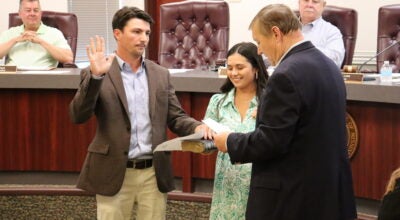Nearly 80 Briefs Support Mississippi, Urging Supreme Court to Empower Women, Promote Life
Published 5:38 pm Friday, July 30, 2021
Hundreds of experts yesterday filed 76 amicus briefs in the case of Dobbs v. Jackson Women’s Health Organization, urging the U.S. Supreme Court to uphold Mississippi’s law that protects life after 15 weeks.
“As evident by the compelling briefs filed here by legal experts, medical providers, and lawmakers from both sides of the aisle, there are countless reasons why the Court should return the abortion discussion to the legislative branch,” said Mississippi Attorney General Lynn Fitch. “Science and society have changed dramatically in the 50 years since Roe, and it will only continue to march forward. It is time to release states from these outdated standards and allow lawmakers who are accountable to the people to decide how best to promote dignity and support for mothers and children.”
Below are quotes from a small sample of the briefs submitted in support of Mississippi:
Defending the Interests of the People
“This Court should return the issue of abortion to the democratic process and restore consistency in our doctrine of substantive due process,” wrote the Christian Legal Society and Robertson Center for Constitutional Law. “Doing so would be a first step toward healing a long-festering wound to our life together as a nation and to our judicial institutions.”
“Should the Court overrule Roe and Casey, there is no reason to believe that Americans would not rise to the challenge of governing themselves on this vexed and contested matter, just as the vast majority of citizens around the world have done through their respective political processes,” wrote
Professors O. Carter Snead, of Notre Dame Law School and Mary Ann Glendon, of Harvard University. “If the public does not approve of the way their State regulates abortion, it can hold its elected representatives accountable.”
“Time has not lessened the belief that unborn life deserves protection,” wrote 24 state Attorneys General. “Rather, an increasing number of States are enacting laws that seek to protect unborn life earlier and earlier in gestation.”
and Shackle States to a View of Facts Decades Out of Date
“Women are better represented now than at any time in our country’s history,” wrote seventy-nine women state legislators. “And although abortion is far from being solely a women’s issue, the increase in women’s voices and perspectives guarantees that, as legislatures across the country debate the issue, women’s concerns will not be ignored or minimized like they might have been when Roe was decided.”
“The Court’s foray into medical regulation may not merely be stagnating the legal standard despite advancing science—it may be impeding science,” wrote Dr. Monique Chireau Wubbenhorst, Dr Grazie Pozo Christie and the Catholic Foundation. “It is unconscionable to think that the ‘medical’ community shapes ‘the science’ to fit its political goals. But this is the division the Court’s abortion jurisprudence inflames.”
“Because medical knowledge about fetal development has overtaken the outdated theories in Roe and Casey, those decisions must be reconsidered,” said American College of Pediatricians and Association of American Physicians & Surgeons. “We now know that the unborn child is a living human being, rapidly developing from the moment of conception and capable of feeling pain long before viability. Even in the pre-viability period, the child’s heart beats, the child can express himself or herself through smiling and other actions, and the child can respond to the environment outside the womb. In short, as basic embryology textbooks now teach, life begins at fertilization—a fact that surprises no one in the medical profession. Absent reconsideration of Roe and Casey, the Court’s abortion jurisprudence will no longer align with what we know about the early development of the unborn child.”
“In sum, a rich literature shows that later-term abortion threatens maternal health,” said American Association of Pro-Life Obstetricians & Gynecologists. “The Mississippi legislature thus acted rationally in restricting abortion after 15 weeks.”
“It is now 48 years ‘after [this Court]’s holding that the Constitution protects a woman’s right to terminate her pregnancy,’ and the legitimacy of that holding ‘is still questioned,’ more intensely than ever,” wrote Ethics and Public Policy Center. “Another 48 years of standing by Roe’s error will not yield any different or better result. The time has come to overrule Roe v. Wade.”




